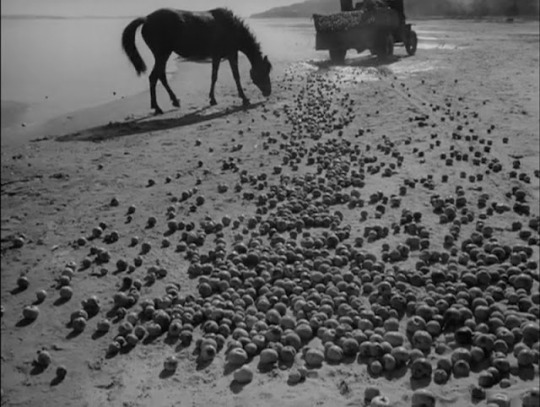#Irina Tarkovskaya
Explore tagged Tumblr posts
Photo



Ivan’s Childhood | Andrei Tarkovsky | 1962
Nikolay Burlyaev, Irina Tarkovskaya
#Nikolay Burlyaev#Irina Tarkovskaya#Andrei Tarkovsky#Tarkovsky#Ivan’s Childhood#1962#Ivanovo detstvo#Irma Raush
75 notes
·
View notes
Photo

If a well is really deep, you can see a star down there even in the middle of a sunny day.
Ivan's Childhood (Ivanovo detstvo), Andrei Tarkovsky (1962)
#Andrei Tarkovsky#Mikhail Papava#Nikolay Burlyaev#Valentin Zubkov#Evgeniy Zharikov#Stepan Krylov#Nikolay Grinko#Dmitri Milyutenko#Valentina Malyavina#Irina Tarkovskaya#Vadim Yusov#Vyacheslav Ovchinnikov#Lyudmila Feyginova#1962
4 notes
·
View notes
Text

Ivan's Childhood (Andrei Tarkovsky, 1962)
Cast: Nikolay Burlyaev, Valentin Zubkov, Evgeniy Zharikov, Stepan Krylov, Nikolay Grinko, Dmitri Milyutenko, Valentina Malyavina, Irina Tarkovskaya, Andrey Konchalovskiy. Screenplay: Vladimir Bogomolov, Mikhail Papava, based on a story by Vladimir Bogomolov. Vadim Yusov. Production design: Evgeniy Chernyaev. Film editing: Lyudmila Feyginova. Music: Vyacheslav Ovchinnikov.
There are scenes in Ivan's Childhood that would work in the hands of only Andrei Tarkovsky. The famous scene in the birch forest, in which Kholin (Valentin Zubkov) straddles a trench and kisses Masha (Valentina Malyavina) while dangling her over it is completely extraneous to Ivan's story, as are almost all the scenes in which Masha, the physician's assistant, appears. And Tarkovsky never falls into the trap of sentimentality in the dream sequences, including the film's ending. In fact, I think it's a mistake to call them "dream sequences" -- they mostly avoid the conventions of movie dreams like odd angles or camera tricks or surreal elements. They're really memory pieces, explorations of the other side of Ivan's childhood, the innocent years of peace, poetically interpolated into the harshness of war. In fact, the "real" sequences are often more dreamlike than the memories: the dizzying ghostlike trunks of the birch trees, the flares falling silently like meteorites, the spiky war ruins that threaten to impale. It's a heartbreaking film because Tarkovsky refuses to pull out all the melodramatic stops but lets his images speak for themselves and because Nikolay Burlyaev performs with such conviction as Ivan, in one of the greatest performances by a child ever captured on film. It's probably the most poetic war film ever made because the war recedes into the background as a thing remembered.
1 note
·
View note
Photo

Nikolay Burlyaev & Irina Tarkovskaya, Ivan’s Childhood (1962)
9 notes
·
View notes
Photo

Andrei Rublev | Andrei Tarkovsky | 1966
Irma Raush
16 notes
·
View notes
Photo

You just spoke of Jesus. Perhaps he was born and crucified to reconcile God and man. Jesus came from God, so he is all-powerful. And if He died on the cross it was predetermined and His crucifixion and death were God's will. That would have aroused hatred not in those that crucified him but in those that loved him if they had been near him at that moment, because they loved him as a man only. But if He, of His own will, left them, He displayed injustice, or even cruelty. Maybe those who crucified him loved him because they helped in this divine plan.
Andrey Rublev, Andrei Tarkovsky (1966)
#Andrei Tarkovsky#Andrey Konchalovskiy#Anatoliy Solonitsyn#Ivan Lapikov#Nikolay Grinko#Nikolay Sergeev#Nikolay Burlyaev#Irina Tarkovskaya#Yuriy Nazarov#Yuriy Nikulin#Rolan Bykov#Nikolay Grabbe#Mikhail Kononov#Vadim Yusov#Vyacheslav Ovchinnikov#Tatyana Egorycheva#Lyudmila Feyginova#Olga Shevkunenko#1966
1 note
·
View note